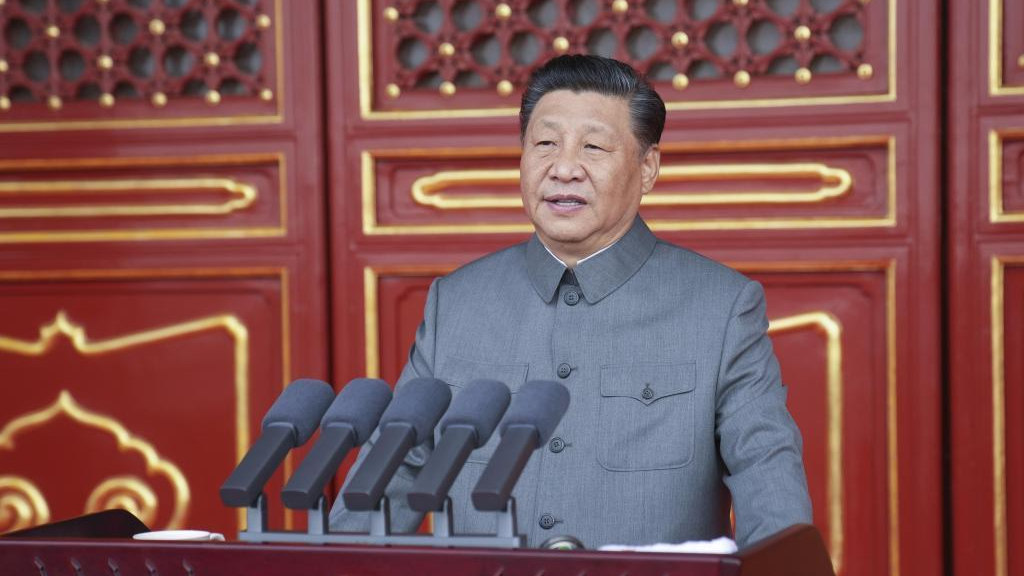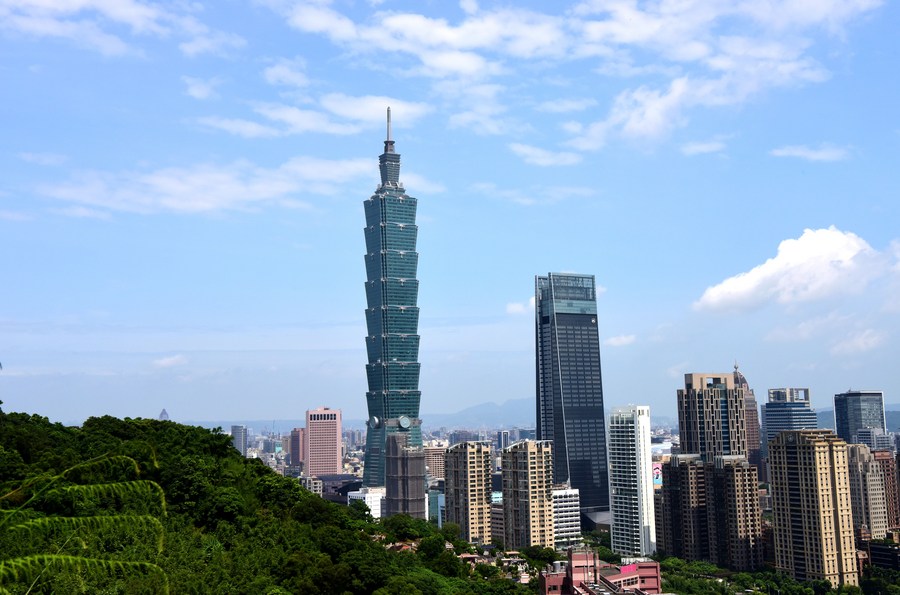
Xi Jinping, general secretary of the CPC Central Committee, Chinese president and chairman of the Central Military Commission, addresses a ceremony marking the centenary of the CPC in Beijing, capital of China, July 1, 2021. /Xinhua
Xi Jinping, general secretary of the CPC Central Committee, Chinese president and chairman of the Central Military Commission, addresses a ceremony marking the centenary of the CPC in Beijing, capital of China, July 1, 2021. /Xinhua
Editor's note: Zhou Wenxing is a research fellow at Huazhi Institute for Global Governance, Nanjing University and former Asia Fellow at John F. Kennedy School of Government, Harvard University. The article reflects the author's opinions, and not necessarily the views of CGTN.
On July 1, Chinese President Xi Jinping, also general secretary of the Communist Party of China (CPC) Central Committee and chairman of the Central Military Commission, delivered a speech at a grand gathering at Beijing's Tian'anmen Square to mark the 100th anniversary of the founding of the CPC. In this extraordinary speech, President Xi's remarks concerning the Taiwan question have attracted extensive attention from both inside and outside China.
Western media and China-watchers have interpreted these remarks from various perspectives. Some speculate that the Chinese government has weakened its unyielding attitude on the Taiwan question because President Xi didn't refer to "non-peaceful means" as he usually had done. Others argue that it is not urgent for China to solve this question for the time being because Xi used the phrase "historic mission" to describe China's complete reunification.
However, such arguments can hardly be right. There are two reasons that could help explain this.
The first one is method bias that Western media and scholars hold. For example, President Xi did call for the advancement of "peaceful reunification" and resolve the Taiwan question as a "historic mission," but he also urged to "uphold the one-China principle and the 1992 Consensus." This kind of selective interpretation, i.e., choosing what they want to hear and dismiss what they don't, is without doubt misleading.

The Taipei 101 skyscraper in Taipei, Taiwan, China, July 21, 2019. /Xinhua
The Taipei 101 skyscraper in Taipei, Taiwan, China, July 21, 2019. /Xinhua
The second and more significant reason lies in the arrogance and narrow-mindedness of Western-oriented culture. In the eyes of most Western countries, China is frequently seen as a so-called non-Western democracy and heterogeneous country. When China has achieved great accomplishments with the leadership of the CPC in the past decades, the Western world tends to bury its heads into sands and demonize China almost in all aspects.
In other words, the Western countries refuse to accept a stronger China. It is much harder for them to accept these facts particularly in the post-COVID-19 era when the U.S. and other Western countries are still grappling with the raging pandemic and weak economic growth. Without an accurate understanding of China, it is thus reasonable that the West will fail to catch the whole picture of President Xi's remarks regarding the Taiwan question.
There are indeed some considerations for the Chinese leadership and government when using terms such as "peaceful reunification," "one-China principle," "the 1992 Consensus" and "non-peaceful means," among others. But no matter what terms are used or not used on a specific occasion, people should never expect that the CPC, the Chinese government or the Chinese people would deviate from the established course toward national reunification.
Resolving the Taiwan question and realizing China's complete reunification is a crucial step towards the national rejuvenation of the Chinese nation. It is "a historic mission and an unshakable commitment" of the CPC and the Chinese government, as President Xi said, adding that "No one should underestimate the resolve, the will, and the ability of the Chinese people to defend their national sovereignty and territorial integrity."
It is therefore unnecessary for President Xi to speak more hardline words like "non-peaceful means" or "use of force" in the speech. Nor is it necessary to use too many words about the Taiwan question.
By no means is the Chinese government weakening its policy on the Taiwan question as some Western media outlets suggest. On the contrary, they are suggesting that China enjoys growing confidence in solving the question as the CPC is celebrating its centenary. As China is now marching in confident strides to the second hundred years, the resolution of the Taiwan question and China's complete reunification will be within reach.
(If you want to contribute and have specific expertise, please contact us at opinions@cgtn.com.)

